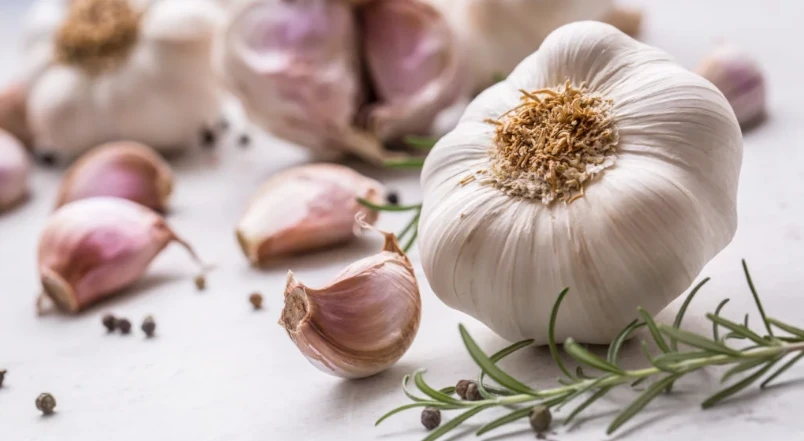Introduction
When you think of garlic , stomach pain probably isn’t the first thing that comes to mind. While garlic is a great way to spice up a dish and even make it healthier, it can also cause abdominal pain and other unwanted symptoms in some people .
Garlic: beneficial properties
Garlic is one of the medicinal plants that has always been considered indispensable, as it has infinite health properties, in fact the garlic bulb is one of the oldest and most widespread remedies in folk medicine. Allicin , one of the sulfur compounds contained in garlic, is a highly effective natural antibiotic and goes against different types of bacteria. In addition to allicin, garlic contains other antibacterial substances such as garlicin; it is rich in mineral and oligomineral substances, such as magnesium , calcium, phosphorus , iodine and iron ; there are traces of zinc , manganese , selenium , vitamin C (only in fresh garlic), provitamin A , vitamins B1-B2- PP ; contains hormone-like substances and enzymes ( lysozyme and peroxidase).
Among the many properties of garlic we find:
- it promotes hair growth due to the phytinic acid transformed into inositol , capable of stimulating cell growth
- lowers the blood sugar level : garlic is considered a valid support in therapies against diabetes
- regulates the metabolism of sugars , and is therefore indicated for metabolic pathologies such as insulin resistance, etc
- strengthens the immune system
- antibacterial and vermicidal function
- it helps to lower blood pressure , and is therefore an ally of hypertensive subjects
- reduces the risk of arterial sclerosis ,
- reduces cholesterol and triglycerides in the blood.
Garlic: symptoms of intolerance
Sensitivity to garlic often manifests itself with the classic symptoms of intolerance of certain foods , especially in the presence of irritable bowel syndrome or colitis . When people with irritable bowel consume certain foods, they can experience gastrointestinal symptoms such as:
- Abdominal cramps
- Swelling
- Gas
- Diarrhea
There are unique trigger foods , but IBS sufferers should avoid consuming too many fermentable oligosaccharides , disaccharides , monosaccharides, and polyols . Foods high in these elements are those that contain:
- High fructose foods
- Products with lactose
- Foods rich in fructan
- Legumes
Excess gas produced in the digestive tract can lead to bloating, painful cramping , and flatulence . Diarrhea, vomiting , and nausea can also occur with a garlic allergy , as well as an itchy rash , eczema , and wheezing . Small amounts of raw garlic may be tolerated, but symptoms may worsen with increased consumption.
Garlic and Fruttano
Garlic intolerance and the consequent manifestations affecting the gastrointestinal tract can be attributed to fructans (also known as inulin ), i.e. natural short-chain carbohydrates that ferment in the digestive system , and which are found in high concentrations in foods such as: garlic but also wheat , onions , shallots , asparagus , and artichoke . Several subjects, when they consume foods rich in fructans, may experience abdominal discomfort , precisely because of the difficulty in metabolizing these carbohydrates, in fact people with this intolerance can associate the consumption of raw or cooked garlic with stomach pain . When, however, irritable bowel syndrome and fructan intolerance are not the source of the garlic sensitivity, one might assume a garlic intolerance or allergy. Often the terms “intolerance” and “allergy” are mistakenly used interchangeably when referring to food, instead they are bodily reactions to specific foods , but they are still different phenomena and cause different types of symptoms. An intolerance to garlic, or an intolerance to any food, can cause symptoms such as nausea, vomiting, diarrhea,Food allergy can cause similar adverse reactions and anaphylaxis. If a specific food appears to be causing you distressing symptoms, you should see your doctor as soon as possible to determine the cause of the ailment.




